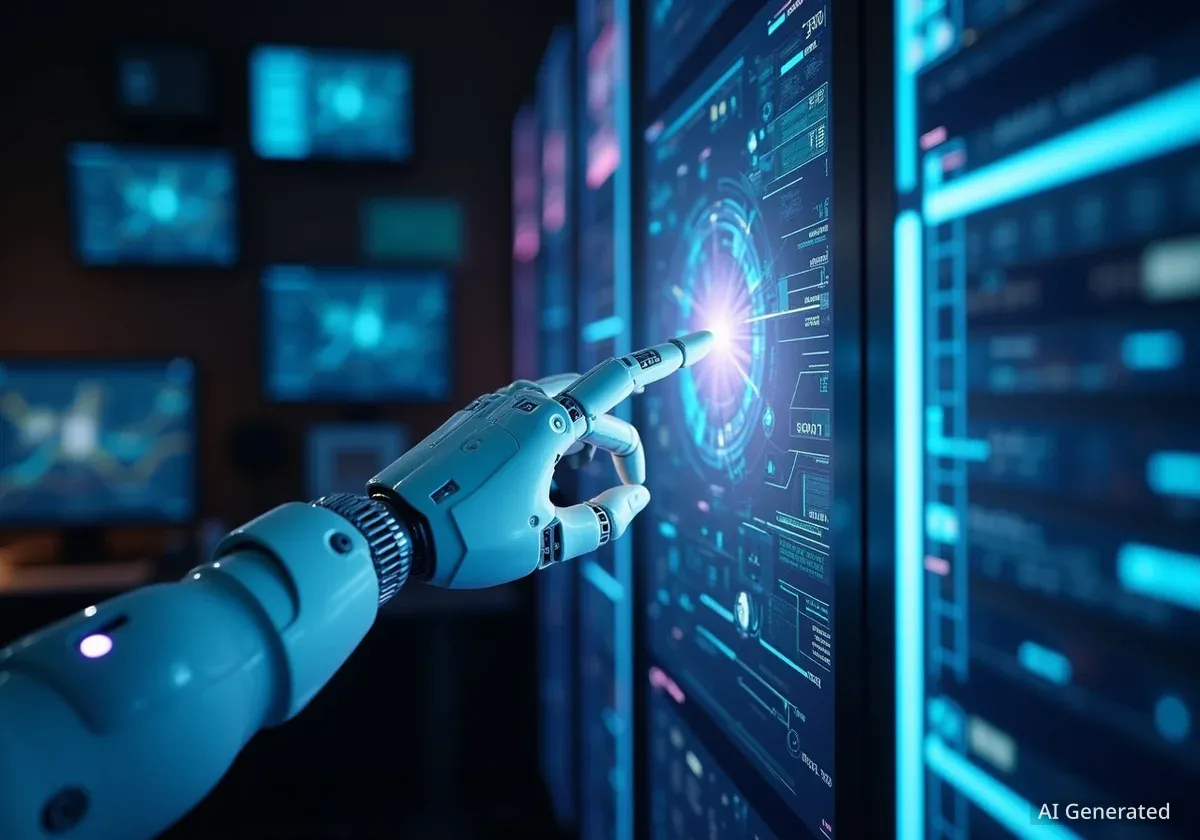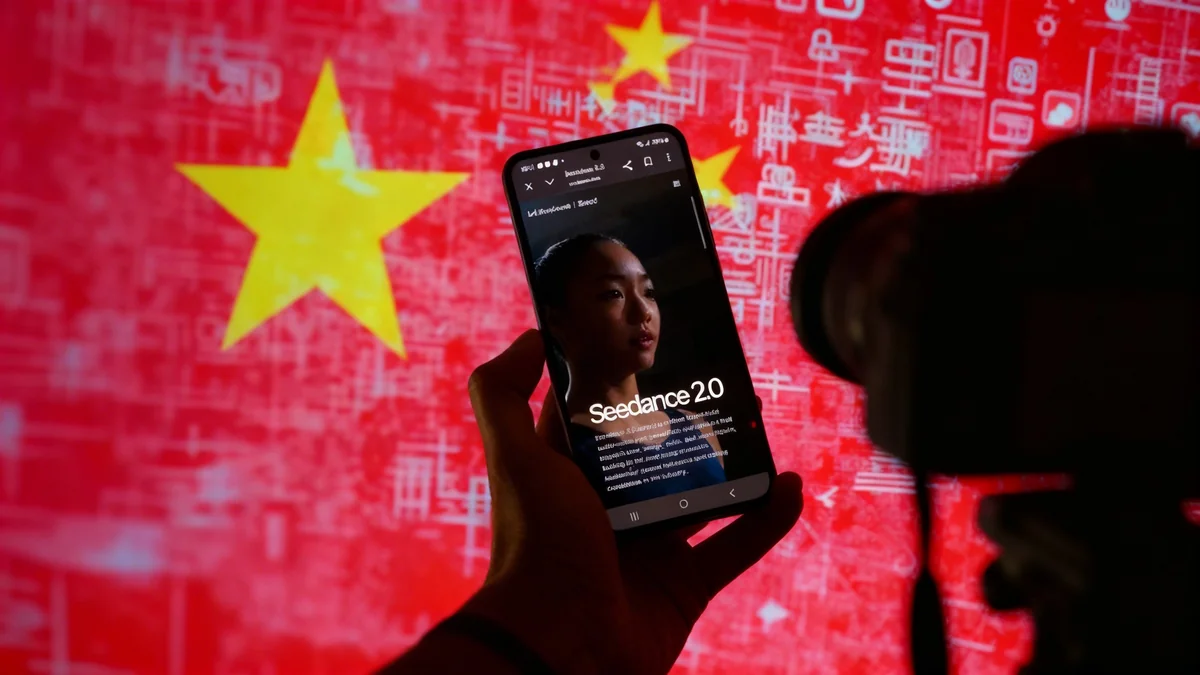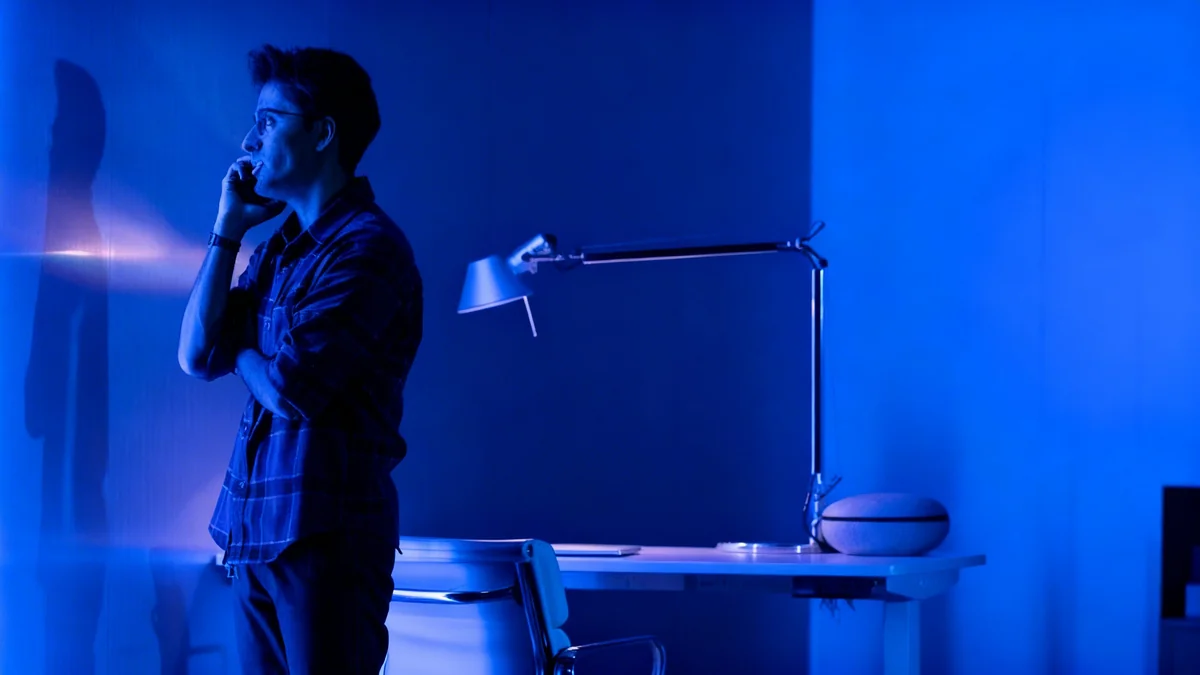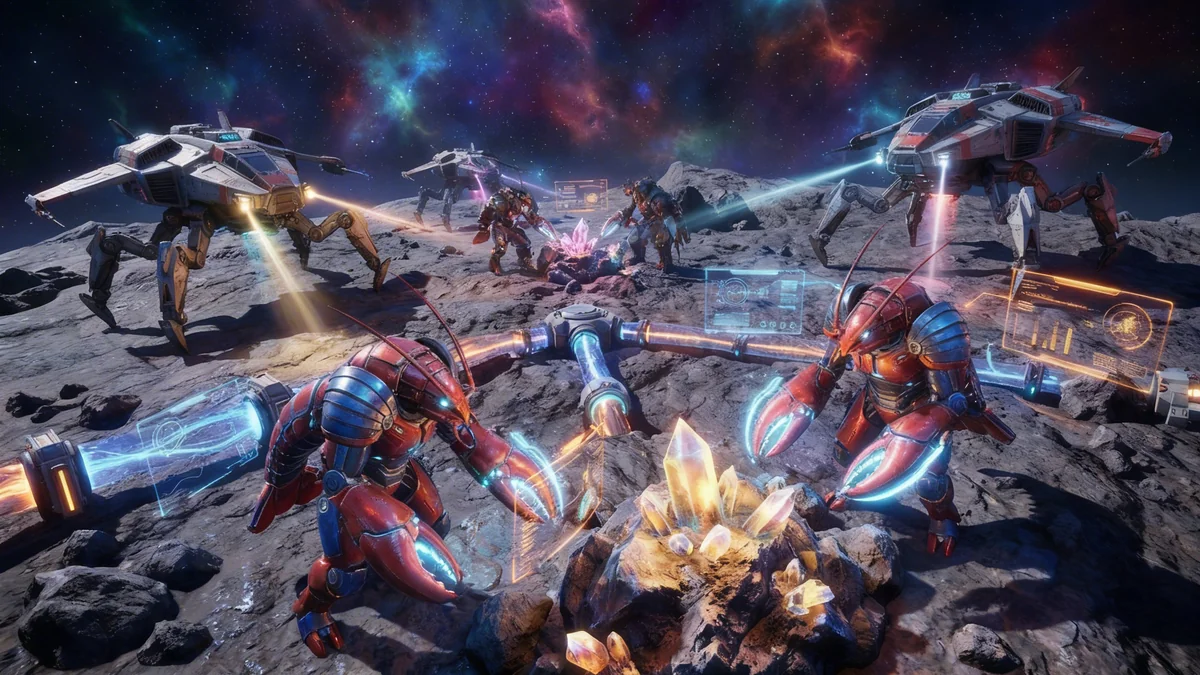Netflix is actively integrating generative artificial intelligence into its content production pipeline. The streaming giant sees AI not as a replacement for human creativity, but as a powerful tool to enhance efficiency and unlock new storytelling possibilities for filmmakers and artists.
Key Takeaways
- Netflix views generative AI as a tool to boost efficiency, not replace human creatives.
- The company has already used AI in productions like 'The Eternaut' and 'Happy Gilmore 2'.
- AI applications include visual effects, character de-aging, and pre-production design.
- Netflix CEO Ted Sarandos emphasizes that AI enhances, rather than replaces, storytelling.
- Concerns about AI's impact on jobs, particularly in visual effects, persist within the industry.
Netflix's Strategic Approach to AI Integration
Netflix outlined its strategy for artificial intelligence in its latest quarterly earnings report. The company stated it is "very well positioned to effectively leverage ongoing advances in AI." This position reflects a deliberate effort to explore AI's potential across various aspects of film and television production.
The streaming service does not intend for generative AI to form the core of its content. Instead, it aims to use the technology to make creative processes more efficient. This includes speeding up workflows and enabling visuals that might be difficult or costly to achieve through traditional methods.
AI in Action
- 'The Eternaut': Used generative AI for a building collapse scene.
- 'Happy Gilmore 2': Applied AI to de-age characters in an opening scene.
- 'Billionaires' Bunker': Utilized AI for wardrobe and set design visualization during pre-production.
Enhancing Creative Tools, Not Replacing Artists
Ted Sarandos, Netflix CEO, clarified the company's stance on AI during a recent earnings call. He stressed the importance of human artistry in filmmaking.
"It takes a great artist to make something great," Sarandos said. "AI can give creatives better tools to enhance their overall TV/movie experience for our members, but it doesn’t automatically make you a great storyteller if you’re not."
This perspective suggests a focus on AI as an assistant or enhancer for human talent, rather than a substitute. The goal is to empower artists with advanced capabilities.
Early Applications of Generative AI in Production
Netflix has already implemented generative AI in several of its productions, demonstrating practical applications. Earlier this year, the Argentine show "The Eternaut" marked the first instance of Netflix using generative AI in final footage. This involved creating a complex scene depicting a building collapse.
More recently, filmmakers behind "Happy Gilmore 2" used generative AI to make characters appear younger in the film's opening sequence. This technology offers new possibilities for visual storytelling and character development without extensive practical effects or casting changes.
Industry Debates on AI
The entertainment industry has seen significant debate surrounding generative AI. Artists and unions, including SAG-AFTRA, have raised concerns that large language models (LLMs) might use their work without consent for training data. There are also worries about AI's potential to negatively impact jobs, particularly in visual effects and animation.
Pre-Production and Design Efficiencies
Beyond final footage, AI is proving valuable in the early stages of production. The producers of "Billionaires' Bunker" employed the technology as a pre-production tool. They used AI to envision wardrobe and set designs, streamlining the creative process before physical production begins.
This application allows creative teams to visualize different options quickly and efficiently. It can save considerable time and resources during the design phase, leading to more informed decisions and potentially higher quality outputs.
Future Outlook and Industry Concerns
Sarandos remains optimistic about AI's role. "We’re confident that AI is going to help us and help our creative partners tell stories better, faster, and in new ways," he stated. "We’re all in on that, but we’re not chasing novelty for novelty’s sake here." This indicates a commitment to thoughtful and purposeful AI adoption.
However, the broader entertainment industry continues to grapple with the implications of AI. Recent developments, such as OpenAI's Sora 2 model, which allows video generation without specific guardrails against deepfaking actors, have intensified these discussions. Actor Bryan Cranston and SAG-AFTRA have urged OpenAI to implement stronger protections.
Impact on Workforce and Creativity
While Sarandos expressed less concern about AI replacing creativity in the movie and TV business, the potential impact on visual effects jobs is a real consideration. As AI tools become more sophisticated, they could automate tasks traditionally performed by human artists in areas like CGI and digital enhancement.
Netflix's quarterly revenue grew by 17% year-over-year, reaching $11.5 billion, though this figure was slightly below the company's forecast. This financial performance highlights the ongoing need for efficiency and innovation within the highly competitive streaming landscape, where AI could play a crucial role.
- AI offers avenues for cost reduction and accelerated production schedules.
- The ethical use of AI and protection of artist rights remain central challenges.
- Netflix aims to strike a balance between technological advancement and preserving human creative input.





